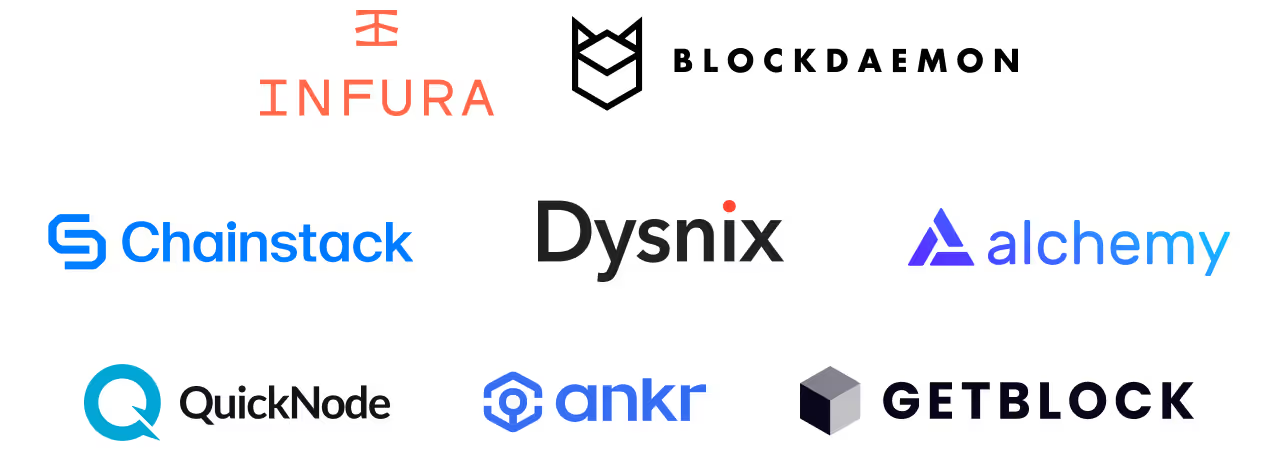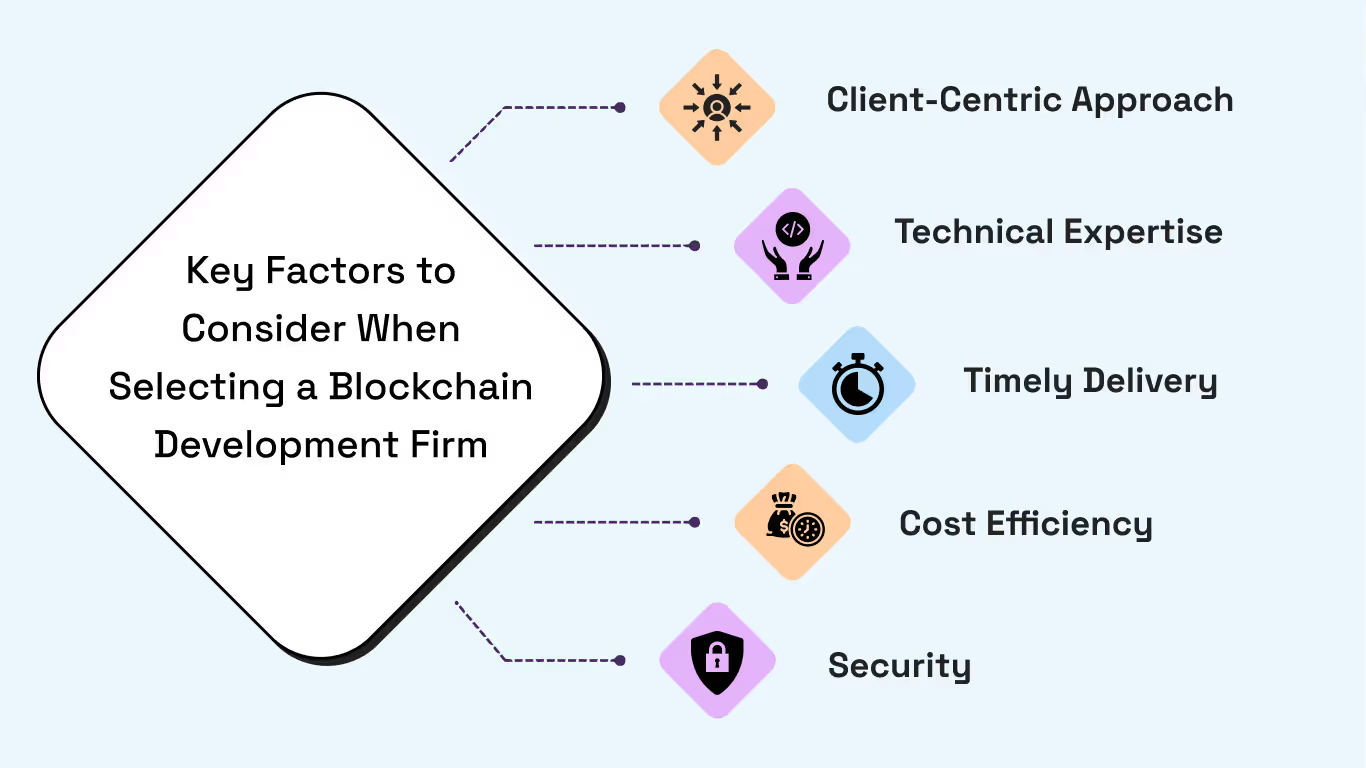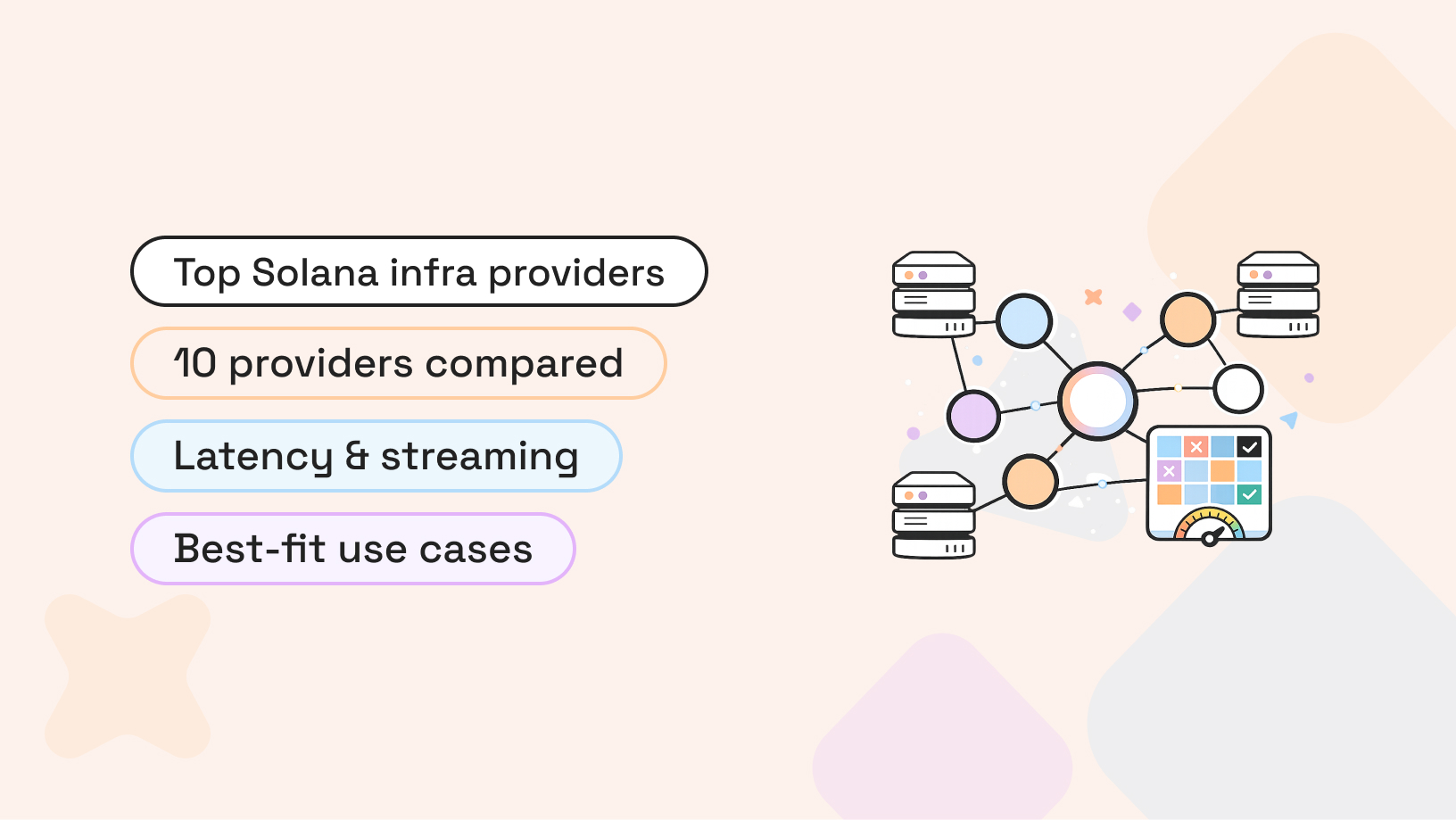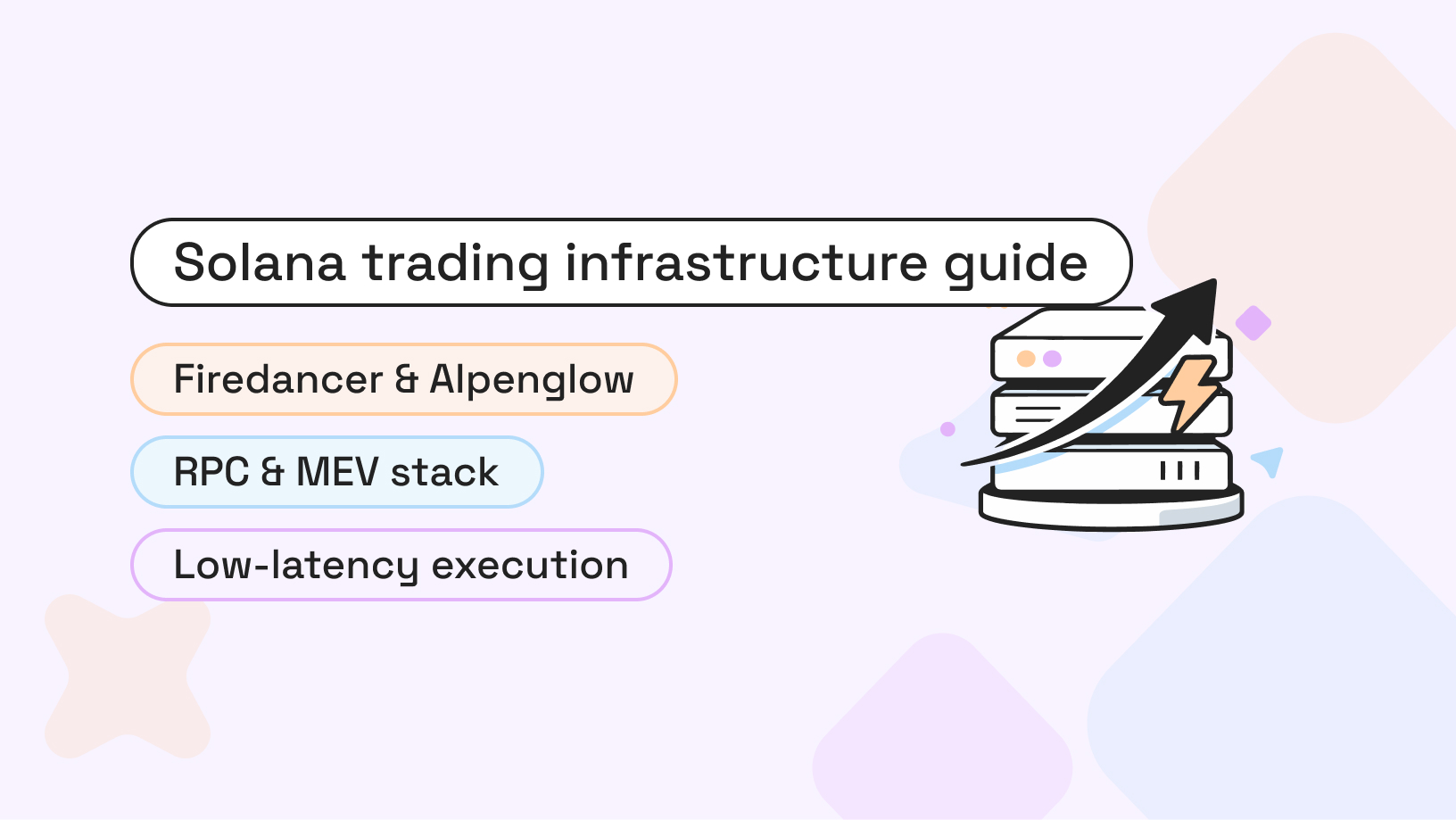
Most people think blockchain runs on smart contracts. In reality, it runs on DevOps. Without fast deployment, 24/7 uptime, and automated infrastructure, even the best protocols fail.
Blockchain DevOps companies are teams that specialize in building, maintaining, and scaling infrastructure for decentralized applications. They ensure networks run smoothly, updates go live safely, and services stay online around the clock.
The market knows it too. DevOps in Blockchain is a rapidly growing niche in 2026, with the specialized market projected to hit over $10 billion by 2029, according to MarketsandMarkets.
Here are the companies making that growth possible.

1. Dysnix
Some DevOps teams deliver stability. Others deliver speed. Dysnix consistently delivers both and more. Based in Ukraine, the company has earned a strong reputation for building fast, secure, and scalable infrastructure across blockchain, AI/ML, and Web3 ecosystems.
Dysnix specializes in full-cycle infrastructure design, from architecture and testing to production rollout, often within just 14 days. Their blockchain DevOps services include validator node hosting, high-load RPC clusters, and real-time blockchain data pipelines. What sets them apart is their predictive autoscaling engine, recognized by Google, which helps optimize performance and reduce costs under volatile load conditions.
Security is another pillar of their offering. According to internal benchmarks, their approach reduces attack risks by up to 98.7%, aligning with industry compliance standards. That level of precision has made them a trusted partner for projects like the Ronin validator node and Web3 platforms requiring complex backend orchestration.
Clients choose Dysnix not only for their engineering skills, but for their ability to act as an extension of in-house teams.
One of their most notable use cases comes from PancakeSwap, where Dysnix helped handle 100,000 requests per second with 62.5x faster response times compared to previous setups. They’ve also contributed to infrastructure used by Polygon, Nansen, and zkSync.
2. Chainstack
Chainstack is a Singapore-based company that provides managed blockchain infrastructure for Web3 teams. Their core offering includes hosted nodes, blockchain APIs, and infrastructure-level DevOps. Clients use Chainstack to simplify backend operations and avoid the overhead of running their own infrastructure.
The company supports multiple chains, including Ethereum, Polygon, and BNB Chain, making it a flexible option for developers building cross-chain applications. Their platform is known for reliable uptime and scalability, which is why it’s used by enterprises, startups, and solo developers alike.
Chainstack powers thousands of dApps globally and maintains 99.99% uptime across its infrastructure. For teams that want to focus on the product without worrying about node maintenance, Chainstack is often a go-to choice.
3. Alchemy
In 2021, Alchemy described itself as the “AWS of blockchain.” By 2026, the comparison holds even stronger. With billions of monthly API requests flowing through its infrastructure, Alchemy has become a key player in powering the Ethereum ecosystem and its Layer-2 networks.
Based in the US, the company offers a broad suite of tools for developers building in Web3, including blockchain APIs, node access, analytics dashboards, and DevOps utilities. Their infrastructure underpins some of the biggest names in DeFi and NFTs.
What makes Alchemy stand out is its focus on developer experience.
In their own words, “We abstract away the complexity of running blockchain infrastructure, so teams can focus on building.”
This simplicity is one of the reasons why major projects like OpenSea and Optimism rely on their services.
Alchemy's combination of scale, performance, and intuitive tooling has helped thousands of developers ship faster without compromising reliability.
4. Infura
Infura, a ConsenSys company based in the USA, is one of the most trusted names in blockchain infrastructure. Unlike full-stack development platforms, Infura focuses on delivering robust DevOps for Ethereum and IPFS that scales with enterprise needs.
Infura offers managed nodes, APIs, and a suite of DevOps tools aimed at ensuring reliability and scalability. Many high-profile projects, from DeFi protocols to NFT platforms, lean on Infura’s infrastructure to manage traffic surges and sensitive data.
One interesting fact: MetaMask relies on Infura during major network spikes, when CryptoKitties drove traffic from 1 billion to over 7 billion daily requests, Infura scaled instantly to support them.
MetaMask’s co-founder, Dan Finla,y says:
"Infura's faithful hosting of Ethereum data has given blockchain access to millions ... It's critical that users can run their own clients, but it's relieving that they don't have to."
Infura also supports OasisX, a leading NFT ecosystem in MENA. Khanafer from OasisX praised its resilience, redundancy, and automatic failover for seamless user experiences.
In the DeFi world, Compound CTO Geoffrey Hayes credits Infura for “rock-solid” uptime that saved them the trouble of building infrastructure in-house, and helped them withstand historic spikes.
Part of ConsenSys’ move toward decentralization, Infura now collaborates with giants like Microsoft and Tencent Cloud to build the Decentralized Infrastructure Network (DIN), a multi-provider RPC layer to eliminate single points of failure.
5. QuickNode
Based in the USA, QuickNode offers a robust blockchain infrastructure platform with ultra-low latency and enterprise-grade reliability. They handle over 200 billion API requests monthly, guarantee 99.99% uptime, and deliver responses roughly 2.5× faster than competitors.
QuickNode provides everything from Core RPC API and historical data streams to rollup deployment tools, serverless functions, and dedicated node clusters. They support more than 70 blockchains, including Ethereum, Solana, BNB Smart Chain, Arbitrum, and Avalanche.
Their guided blueprints and technical resources—covering topics like “how to deploy your own rollup” and building Grafana dashboards with Prometheus—help teams move from MVP to full production with minimal friction.
Clients often cite global coverage, speedy endpoints, and responsive support. As Nansen’s engineering manager put it:
“QuickNode provides the most robust, low-latency, high-performance nodes on the market with great multi‑chain coverage and excellent technical support”.
6. Blockdaemon
For teams pushing Web3 into enterprise, Blockdaemon serves as the backbone of next-gen infrastructure. This US-based company excels at providing fully managed nodes, APIs, staking services, and DevOps orchestration with institutional reliability.
Blockdaemon supports over 60+ blockchain networks, manages more than 250,000 nodes, and secures upwards of $110 billion in digital assets for 400+ institutional clients. They hold ISO‑27001 and SOC 2 Type II certifications and guarantee 99.9% uptime, making them a top choice for mission-critical applications.
One standout use case is their one-click staking integration with Fireblocks, which unlocked access to Solana staking for more than 2,000 institutional clients via Fireblocks’ platform, backed by Blockdaemon’s automated slashing protection and SOC-compliant infrastructure.
They also operate as a top validator across networks like TON and Stacks, offering white-label staking with sufficient uptime guarantees that satisfy major financial institutions. And institutions managing hundreds of billions in assets trust their staking APIs and MPC wallets to secure yield-generating positions on-chain.
7. Ankr
Ankr operates out of Singapore and multiple global regions, offering a truly decentralized, high-performance blockchain infrastructure platform. They power over 8 billion daily RPC requests, support 70+ blockchains, and maintain 99.99 % uptime, making them one of the most reliable non-US providers in Web3.
Their services go beyond basic RPC hosting. Ankr supports liquid staking (with $83 M+ TVL), Supernets-as-a-Service (rollups and sidechains for EVM ecosystems), and enterprise-grade node infrastructure across 30+ regions. Their global, bare‑metal & cloud hybrid network ensures low-latency access anywhere, benefiting Polygon, SushiSwap, Flow, Chiliz, BNB Chain, and many more.
Ankr also integrates closely with EigenLayer for liquid restaking of AnkrETH tokens and supports modular Layer‑2 creation via their Rollup-as-a-Service tools.
8. GetBlock
GetBlock, headquartered in Cyprus, provides streamlined access to blockchain nodes through ready-to-use APIs and DevOps services. The company focuses on helping developers launch, test, and scale dApps without managing full node infrastructure.
They support more than 50 blockchains, including Bitcoin, Ethereum, Polygon, Arbitrum, BNB Chain, and Tron. Services include shared and dedicated node access, custom DevOps configurations, and real-time analytics to monitor performance.
GetBlock works with crypto wallets, DeFi tools, and NFT marketplaces. Their shared node access offers a fast and affordable entry point for smaller teams, while dedicated node services ensure stability and speed at scale.
Thanks to their balance between accessibility and performance, GetBlock is a popular option among projects in Europe, MENA, and Southeast Asia.
How do you know you've chosen the right DevOps partner?

There’s no one-size-fits-all solution in Web3 infrastructure. The right DevOps partner depends on what you’re building and where you plan to scale.
If your goal is to launch fast and minimize internal overhead, providers with ready-made node access and streamlined APIs make sense. They’re a great fit for early-stage teams testing ideas or scaling gradually across a few chains.
For high-load DeFi platforms or custom L2s, you’ll need more control. In these cases, look for companies offering dedicated infrastructure, custom deployments, and performance tuning under real-time traffic. Uptime, latency, and security become non-negotiable.

Beyond services, adaptability matters. Some teams shine in narrow segments. Others, like Dysnix, have proven themselves across complex, multi-layered environments.
Take Kolibrio, for example. When they needed to push the limits of MEV optimization, Dysnix’s R&D team identified key architectural advantages. They deployed a self-hosted transaction simulator with under 1 millisecond latency, filtered spam efficiently, and adapted the solution across Ethereum, BNB Chain, and Polygon. Kubernetes orchestration and 10 Gb switching ensured rapid, stable communication, essential for real-time simulation at scale.
That level of flexibility isn’t common.
So when choosing a DevOps partner, it’s worth asking: Can they go beyond standard setups?
Can they adapt to changing architectures, chains, and traffic conditions?
With so many blockchain DevOps companies offering similar promises, the real difference comes down to flexibility, technical depth, and proven experience across diverse environments.



















.svg)
.svg)
.svg)

